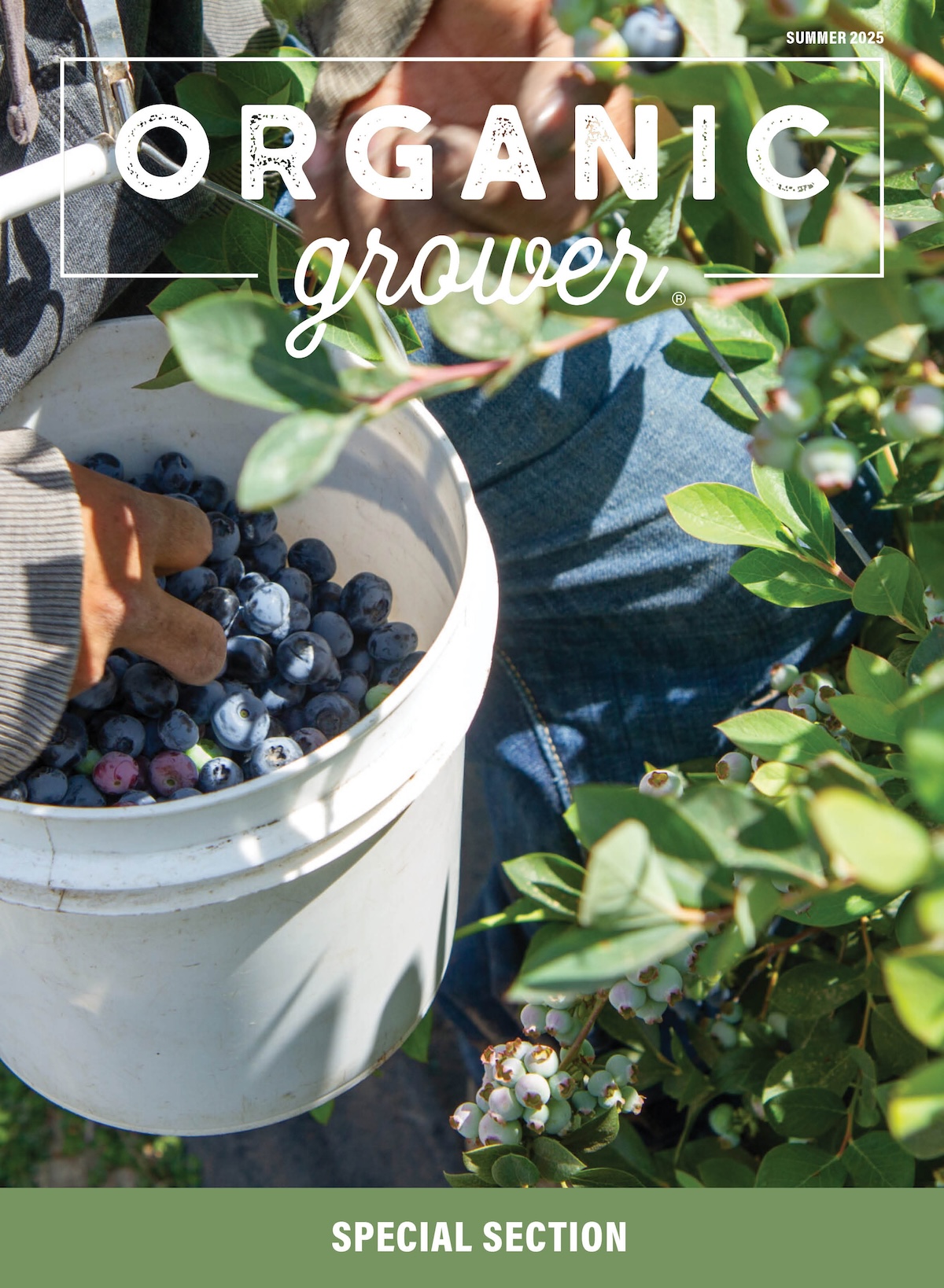Oct 18, 2017
UNH to develop strawberry varieties for organic production
Scientists with the New Hampshire Agricultural Experiment Station at the University of New Hampshire have launched a research project that aims to develop the first varieties of strawberries specifically designed for organic agriculture in the United States.
The organic strawberry varieties will be developed for optimal production in New England using advanced genetic techniques. UNH is recognized as one of a very small handful of institutions worldwide working at the forefront of strawberry genomics and its application to strawberry breeding.
“No strawberry varieties yet have been developed specifically for organic agriculture in the United States, and only one company located in Europe offers any strawberry seed-propagated varieties specifically for organic production,” said experiment station researcher Lise Mahoney, who is leading the three-year project. “This project will contribute to advances in strawberry breeding for organic agriculture and will advance knowledge of the genetic basis for trait variation, inbreeding depression, and hybrid vigor in strawberry.”
“We want to provide strawberry growers with regionally adapted, seed-propagated strawberry varieties that are suitable for organic agriculture and are pleasing to consumers. Organically certifiable, seed-propagated varieties provide an attractive and environmentally friendly alternative to the vegetatively propagated varieties currently relied upon by the strawberry industry,” Mahoney said.
The research project has received strong support from Driscoll’s Berries, a developer and producer of organic strawberries and other berries, and High Mowing Organic Seeds, a developer and producer of organic seeds.

Experiment station researchers plan to produce both day-neutral and short-day flowering strawberry varieties for organic agriculture that can be propagated by seed rather than by the conventional runner plant approach. According to Mahoney, strawberries typically are propagated vegetatively from runners and purchased by growers as bare-root plants. However, this bare-root production method presents major problems in regards to organic agriculture.
First, the process of generating the bare-root plants requires chemical inputs to avoid transmission of diseases. Second, the grower planting schedule is dictated by the bare-root supplier and therefore planting stock availability is seasonally limited according to the purchaser’s climatic region.
Mahoney and her collaborators, including Tom Davis, professor of genetics, molecular and evolutionary systems biology, and sustainable agriculture and food systems, and Becky Sideman, professor of plant biology and Extension professor and specialist in sustainable horticulture production, will use an advanced breeding method called marker-assisted breeding. Marker-assisted breeding allows scientists to conduct traditional cross-hybridization and trait-based selection using genetic testing. Mahoney and Davis will conduct the genetic testing using the IStraw90 SNP Array, which they helped develop.
The research will be conducted at the UNH Macfarlane Research Greenhouses and Woodman Horticultural Research Farm, both facilities of the NH Agricultural Experiment Station. Preliminary research for this project was conducted at the two facilities earlier this year.

The United States is the world’s leading producer of strawberries. In 2014, the United States produced more than 3 billion pounds valued at $2.9 billion, according to the USDA. Most U.S. strawberries are grown in California. Strawberries are an important crop in New Hampshire. Sideman estimates the retail value of New Hampshire’s strawberry crops at about $1.85 million.
“Organic farming is one of many approaches to make American agriculture sustainable and responsive to consumer demand,” said Sonny Ramaswamy, director of the USDA’s National Institute of Food and Agriculture. “These NIFA investments help develop tools necessary for traditional farmers to pursue organic farming and help boost the economic gains for existing organic farmers and ranchers.”
This research project is funded by the National Institute of Food and Agriculture’s Organic Agriculture Research and Extension Initiative under accession number 1013061.Collaborators also include Driscoll’s Berries, High Mowing Organic Seeds, and David Handley, vegetable and small fruit specialist at University of Maine Cooperative Extension, a recognized specialist and evaluator of strawberry varieties.
— Lori Wright, University of New Hampshire
Source: NH Agricultural Experiment Station









